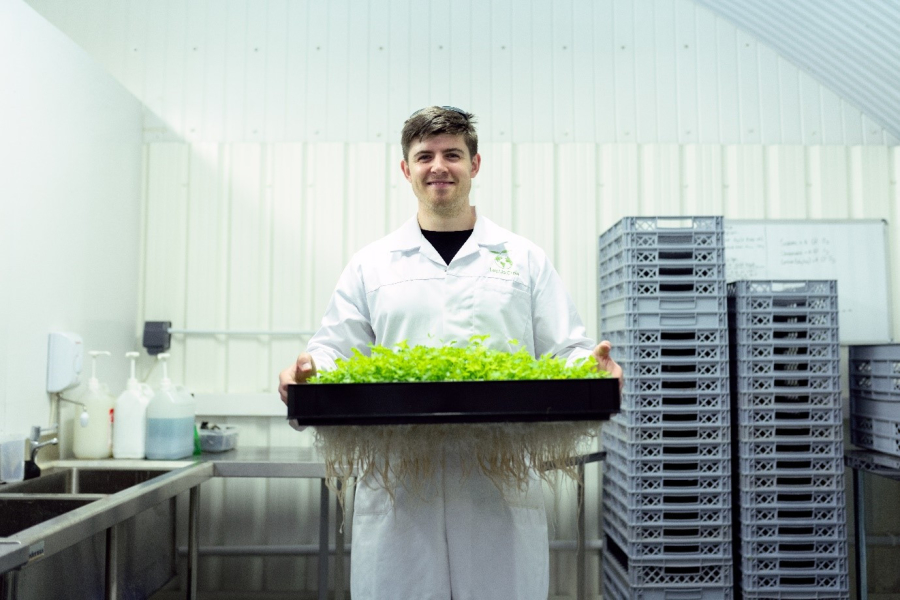
Welcome to our round up of the latest business news for our clients. Please contact us if you want to talk about how these updates affect your business. We are here to support you!
Innovation has generally been recognised as essential for value creation, both for individual companies and for the UK economy. The development of new ideas, processes and technologies and their flow across different sectors is a significant driver of economic growth and productivity. Recently, innovation has also been identified as crucial to the transition of the economy away from fossil fuels and carbon-intensive business activities.

There are many factors that affect whether and how businesses innovate, for example the availability of skills and capital and government policy measures such as tax incentives.
However, none are more important that the company’s own culture, capabilities, and internal systems – all of which are aspects of its governance. Unless companies are governed in a way that is conducive to innovation, they are unlikely to be able to take advantage of new opportunities.
Our most innovative clients share some key characteristics:
Research and Development (R & D) is the process of taking an innovative idea and transforming it into a fully-fledged product or procedure. R & D tax credits are a government incentive designed to encourage innovation across multiple industries. If you carry out R & D that aims to make an advance in science or technology, this is an opportunity for you to reduce your corporation tax bill or receive a refund from HMRC based upon the relevant costs your business dedicates to Research & Development. Recently, R &D tax credits have been the subject of additional scrutiny by HMRC, and some rates will be less generous from April 2023, but it could still be a useful tax relief for your company.
If you are looking for long term finance to support innovation then you will need to ensure your management accounts are up to date, you make available current detailed lists of debtors and creditors, and you might need up to date projections before an expert will consider your application.
Please talk to us about R & D tax credits and long-term finance, our independent experts have many years of experience and success in advising business across a wide range of sectors.
If you are planning to claim the UK state pension you should check your national insurance (NI) record before 5 April 2023. At present, voluntary contributions can be made to plug gaps back to April 2006, but this will be curtailed from April.
National insurance (NI) contributions are made by employed and self-employed individuals based on their earnings. To qualify for the maximum ‘new state pension’ (received by those retiring on or after 6 April 2016) a person must have 35 qualifying years of NI contributions. For part payment of the ‘new state pension’ a person must have contributed for at least 10 years. For those whose NI record started before 6 April 2016, different rules may apply; the number of required years of NI contributions/credits to obtain the full state pension may be higher.
If a person has not contributed enough before reaching state pension age, they may not be able to claim state pension, or receive the full state pension amount.
To help protect state pension and other benefits it may be beneficial for people to make voluntary NI contributions to top up their contribution history, potentially increasing the amount of state pension they will receive. We recommend you take financial advice when making that decision as, amongst other factors, it requires predicting what contributions will be made before state retirement.
Normally, it is only possible to make voluntary contributions for the past six tax years. Currently there is an extension in place. Individuals can fill gaps in their NIC history from 6 April 2006 to the present date by making voluntary contributions.
From 6 April 2023, the timeframe for making voluntary contributions will revert to the normal six years. This means that in the 2023/24 tax year, it will be possible to make contributions going back to the 2017/18 tax year only.
See: Check your national insurance record before 5 April 2023 | ICAEW
Next generation energy innovators will receive a £24 million cash boost to develop new technologies that will decarbonise UK industry, build home-grown energy supplies and help prepare the country for a net zero future.
Thirty-seven British companies, including small and medium sized enterprises and start-ups, will get a share of the £19 million Energy Entrepreneurs Fund.
The money will drive forward their innovations to reduce carbon emissions, develop clean energy and improve energy efficiency in people’s homes.
The UK-wide projects will allow industry to play its part in helping the country meet its 2050 net zero target by delivering decarbonisation solutions, as well as potentially creating hundreds of green jobs and triggering private sector investment worth millions. The winning projects include:
Facial recognition technology (FRT) identifies or otherwise recognises a person from a digital facial image. Businesses can use FRT in a variety of contexts - for example, in allowing access to devices, taking payments, or allowing entry to secure areas.
Depending on the use, FRT involves processing personal data, biometric data, and special category personal data. Such technologies can intrude on people's privacy, so businesses need to think carefully when deciding if they should implement them.
If you are a small business looking to begin using facial recognition technology, read the ICO's latest FAQ about using FRT for payment, entry, or other security systems.
The information highlights key issues to be aware of, such as:
See: Additional considerations for technologies other than CCTV | ICO
Plastic Packaging Tax (PPT) was introduced on 1 April 2022. If you manufacture or import 10 or more tonnes of plastic packaging within a 12-month period you must register for PPT on GOV.UK, even if your packaging contains 30% or more recycled plastic.
You must register for Plastic Packaging Tax if you:
This includes non-resident taxpayers who import finished plastic packaging components into the UK on their own behalf, or manufacture finished plastic packaging components in the UK.
The importer will generally be the consignee on the importation documents, unless they provide records showing they are acting on behalf of someone who’s controlling the import, and are using the consignee to store goods on their behalf.
If you import finished packaging components using incoterms, you should make sure you and other businesses know who is responsible for accounting for Plastic Packaging Tax. The tax becomes chargeable when the goods are imported but is accounted for quarterly in arrears rather than at the time of import.
If you are a partnership or other unincorporated body
You must register if at least one partner (or person carrying out business) will manufacture or import 10 or more tonnes of finished plastic packaging components in the next 30 days or since 1 April 2022. All members will then be joint and severally liable for Plastic Packaging Tax.
If you are a member of a business group
You can register as a group. This allows for only one of the businesses to complete returns and make payments on behalf of all members of the group.
When to register
You must register for Plastic Packaging Tax within 30 days of becoming liable for it. You must pay the tax on all chargeable components from the day you’re liable to register. You may need to pay a penalty if you do not.
See: Check when you must register for Plastic Packaging Tax - GOV.UK (www.gov.uk)
The Health and Safety Executive (HSE) have updated their guidance to make it easier to find and understand advice on how to protect workers in low temperatures. This includes guidance for working outdoors.
It also explains how you can assess the risks to workers and put controls in place to protect them.
With low temperatures and less daylight, winter can make surfaces perilous. As a result, slip and trip accidents increase significantly.
See: Is it too cold or hot to work? (hse.gov.uk)
Over 200 of the world’s highest profile investors, CEOs and financiers are expected to come to the UK in October for a second Global Investment Summit (GIS 23).
GIS 23 will aim to raise billions of pounds of high value investment to create jobs across the UK, with a special focus on high tech sectors such as innovation, research, and development.
The event will build on the inaugural Global Investment Summit in October 2021, that brought together over 170 CEOs to showcase the UK’s commitment to green investment ahead of COP26.
The 2021 Summit secured £9.7 billion of new foreign investment on the day, creating over 30,000 new jobs and supporting growth in vital sectors such as wind and hydrogen energy, sustainable homes, and carbon capture and storage.
Training programmes to attract new recruits and improve the quality of training in the fishing, seafood, and aquaculture sectors have been awarded funding from the £100million UK Seafood Fund.
Recognising industry concerns over an ageing fishing workforce and with the number of UK fishers having fallen by 1,700 over the past decade, the UK government considers it is now more important than ever to ensure entrants are equipped with the necessary skills to join the sector and understand the opportunities that are available to them.
Coinciding with National Apprenticeship Week, the seven projects include pilot courses at London’s famous Billingsgate market covering technical skills such as the delivery, preparation, and cooking of seafood; practical qualifications for manning fishing boats in Cornwall; and training for school leavers in Scotland going into the seafood industry.
See: Fishing industry nets new funding to train the next generation - GOV.UK (www.gov.uk)
Small and local charities, working with people facing complex issues and barriers, can apply for grant funding from Lloyds Bank Foundation for England and Wales.
Specialist charities with an annual income between £25,000 and £500,000 can apply for a three-year, unrestricted grant of up to £75,000.
The Foundation will support charities that understand the complexity of the issues people face and are best placed to make a genuine difference to people’s lives.
The open themes are:
The deadline for applications is 5pm, 3 March 2023.
See: Apply for funding (lloydsbankfoundation.org.uk)

The following Cookies are used on this Site. Users who allow all the Cookies will enjoy the best experience and all functionality on the Site will be available to you.
You can choose to disable any of the Cookies by un-ticking the box below but if you do so your experience with the Site is likely to be diminished.
In order to interact with this site.
To help us to measure how users interact with content and pages on the Site so we can make
things better.
To show content from Google Maps.
To show content from YouTube.
To show content from Vimeo.
To share content across multiple platforms.
To view and book events.
To show user avatars and twitter feeds.
To show content from TourMkr.
To interact with Facebook.
To show content from WalkInto.